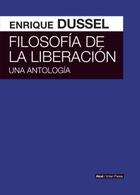
This anthology shows the fundamental thesis of the Philosophy of Liberation as a way of thinking that arises from a locus enuntiationis (place of enunciation) located externally, in the geopolitical, cultural, economic, political, military periphery of the global South, with an active position in living in a dependent, neo-colonial world. As an act of decolonizing rebellion, the Philosophy of Liberation saw in the dominated peoples, excluded from modern civilization —and, therefore, from its thought—, the opportunity to deploy a broader horizon than that of mere Eurocentrism.
Starting from world history, Dussel situates philosophical thinking from the alterity of the Other, the nothing, the non-being, "the widow, the orphan, the foreigner" (as Hammurabi describes them in his code of Babylonian law) and the poor, otherness from which the criticism of any system (economic, politic...read more









